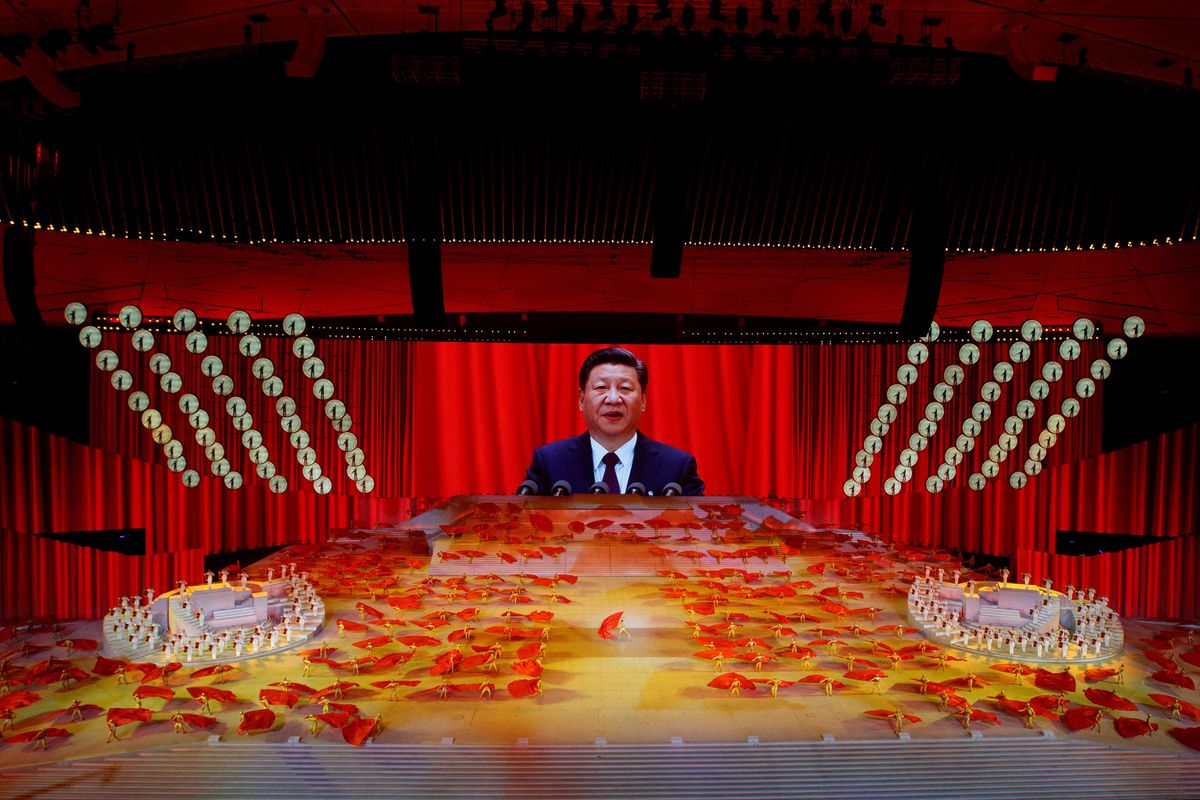Seven months ago, Xi Jinping was at the pinnacle of his power, appearing untouchable as China's president and general secretary of the ruling Communist Party. He’d gotten the CCP to rewrite its own history, putting him on par with Mao Zedong and Deng Xiaoping; brought the country's tech titans to heel to make China a more egalitarian society; and made Chinese kids study how he thinks.
At the time, though, we also warned that Xi would be on the hook if something went south, like failing on his zero-COVID strategy.
Since then, zero-COVID has continued to avert mass pandemic deaths in China — albeit at a very high cost. There's virtually no way the Chinese economy can hit its already-modest 5.5% growth target for 2022. And just ask people in Shanghai how they feel about going into lockdown again.
What's more, this is no ordinary year for Xi. In October or November, China's leader is set to obtain a precedent-defying third term as president and general secretary at the 20th party congress. But according to some recent chatter, it might not be the walk in the park he was hoping for.
Over the past two months, certain China watchers have been obsessing over growing speculation that Xi himself could be in trouble ahead of the meeting. Some have even suggested a split between him and Premier Li Keqiang, now tasked with the impossible job of trying to rescue the economy while doubling down on zero-COVID. Xi has already cracked down on the gossip, warning party cadres to keep their mouths shut.
So, should China’s all-powerful leader be worried about his immediate future? Nope.
"The intense rumors that Xi is losing his grip [are] greatly exaggerated. I think he is under growing pressure because of the widespread discontent about COVID policy and the economic slowdown," says Wang Xiangwei, a veteran Beijing-based columnist for the South China Morning Post. "But [Xi] is still firmly in control, and he has the final say over the composition of the next leadership, namely the Politburo Standing Committee."
Although China's top leaders are technically "elected" every five years by some 2,300 CCP delegates, the party's most powerful decision-making body is actually the Politburo Standing Committee, whose seven members — including both Xi and Li — are handpicked through backroom politicking before the event. They are the CCP’s inner sanctum; keeping track of who's up and who's down is the essence of Pekingology, the China watcher's answer to Kremlinology.
Still, even if Xi will call most of the shots, Wang believes that "some horse-trading is inevitable." For instance, he suggests Xi might find it hard to elevate favorites like Li Qiang, the party secretary in Shanghai, who's gotten a lot of flak for waiting too long to lock down China's largest city.
Xi might also promote more technocrats because his priority will be to maintain economic growth, says Eurasia Group analyst Neil Thomas.
Xi, he explains, could increasingly be "looking to empower and promote officials whom he thinks will actually be able to do a good job" on the economy — which, the general secretary tells senior officials, remains imperative to keep the party (and Xi himself) in power. That, in turn, could mean taking fewer risks to avoid rocking the boat in turbulent economic times.
For Thomas, Xi’s position might become materially weaker only if China’s economic growth "really falls off a cliff.”
Or perhaps he’ll come out stronger from zero-COVID. After all, Mao survived the famine unleashed by his Great Leap Forward, and Deng the Tiananmen protests, spurred by the pro-democracy movement that his economic reforms partly set in motion. Will Xi follow in their footsteps?





